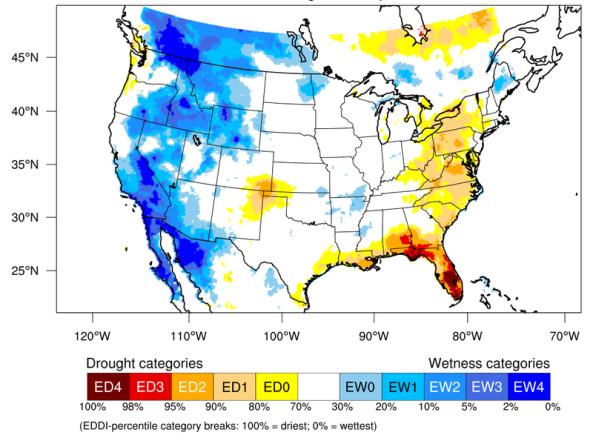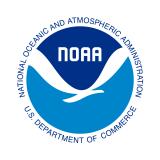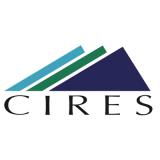Improving Drought Monitoring and Early Warning in the Midwest DEWS Using the Evaporative Drought Demand Index (EDDI)

The goal of this project is to enhance drought-monitoring and early warning across the Midwest drought early warning system (DEWS) by improving the applicability and utility of the Evaporative Demand Drought Index (EDDI). The team will work towards developing a tool for NIDIS that is both stakeholder-oriented and scientifically supported and that fits the decision-making calendars particular to Midwest DEWS stakeholders.
Further, given the hydroclimatic history of drought in the region, the project team aims to demonstrate EDDI's utility in flash drought detection and drought attribution. Specifically, this three-year effort will (1) quantify the early warning skill of EDDI within the Midwest DEWS, (2) develop a flash drought detection metric, and (3) develop a methodology to attribute dry anomalies that generate and sustain drought to its meteorological drivers, and wet anomalies that terminate drought events and/or lead to elevated flood risk.
For more information, please contact Molly Woloszyn (molly.woloszyn@noaa.gov).
Research Snapshot
What to expect from this research
- A report and communication pieces to NIDIS on the early warning skill of EDDI in the Midwest DEWS
- Flash drought detection maps on the EDDI web page
- Development of a new available water on the ground (AWG)-based drought index
Related Data & Maps
The Evaporative Demand Drought Index (EDDI) is an experimental tool that examines how anomalous the atmospheric evaporative demand (E0; also known as "the thirst of the atmosphere") is for a given



